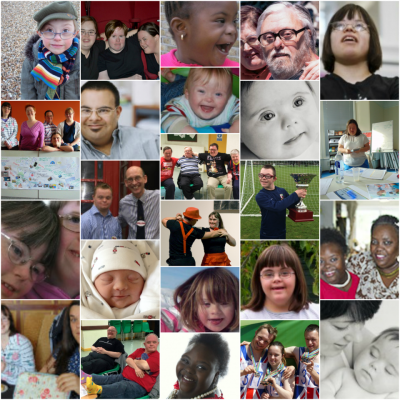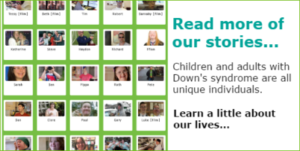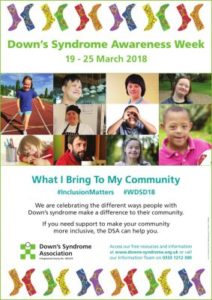 22 January 2018
22 January 2018
We understand the concern that surrounds the proposed introduction of NIPT in NHS settings. The impact of the new test will be monitored, as recommended by the Nuffield Council on Bioethics last year, but at the moment we don’t yet know what effect offering NIPT more widely will have.
The need for up-to-date, accurate, information about Down’s syndrome is of paramount importance. That is why The Down’s Syndrome Association has been working with Public Health England in training sessions for screening coordinators and midwives, to ensure they have the required knowledge and skills to undertake this important task. In addition, our Tell it Right® training has reached more than 5,500 midwives over the last three years. Each training session involves families of children with Down’s syndrome and adults who have Down’s syndrome, sharing their lived experience of what life is like with Down’s syndrome today. The fact that more and more people with Down’s syndrome are attending mainstream schools, taking up employment and being included in their local communities means that prospective parents, the medical teams who look after them, friends and wider family are all more likely to have some personal experience of knowing someone who has Down’s syndrome.
It’s important that pregnant women are able to understand what their options are around ante-natal screening. This includes the option to decline screening, and decisions women make about the uptake of screening anywhere along the screening pathway must be respected. NIPT is optional rather than recommended. Specifically, NIPT (Non Invasive Prenatal Testing) is not a diagnostic test and women would still need to undergo an invasive procedure in order to obtain a pre-natal diagnosis that gives them an 100% accurate result. NIPT will not be made available to all pregnant women. It will be offered to women who have a higher chance result from combined screening tests. We speak to women and couples every day who have chosen to continue with their pregnancies and are looking forward to the birth of their baby with Down’s syndrome.
We speak to women and couples every day who have chosen to continue with their pregnancies and are looking forward to the birth of their baby with Down’s syndrome.
We give a cautious welcome to a study carried out by Prof Lyn Chitty in December 2017, which concluded that where NIPT had piloted in sites in England, the number of births of babies with Down’s syndrome had not decreased and in some cases termination rates had fallen. It is thought that this was due to women accessing more up-to-date, accurate information about Down’s syndrome and then choosing to continue with their pregnancy.
Life for people with Down’s syndrome is much better now than it has ever been but there is still a great deal of work to be done to make sure that they are given the same opportunities as everyone else.
Read the Church of England discussion paper here
Find out more about our Tell It Right® campaign and training



